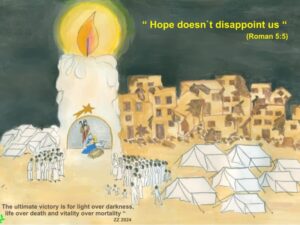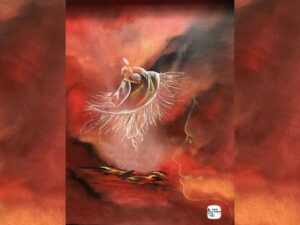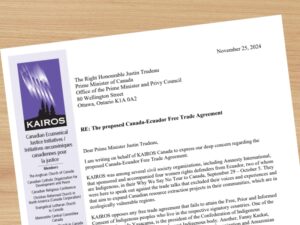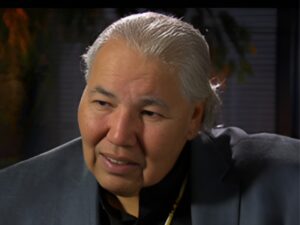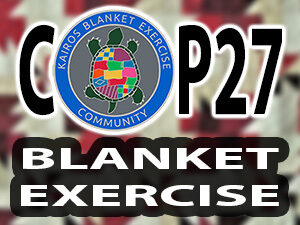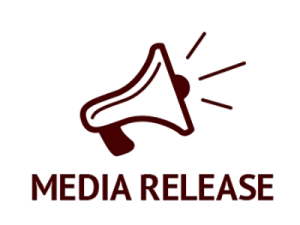At University of Toronto’s Faculty of Medicine, leaders take part in KAIROS Blanket Exercise that teaches Indigenous history and trauma
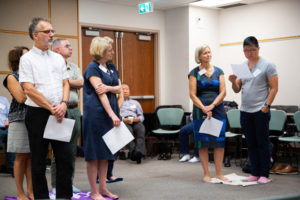
Photo by Liam Mitchell: Department chairs and senior leaders in the Faculty of Medicine participate in the KAIROS Blanket Exercise.
Dr. Lisa Richardson, co-lead of Indigenous Medical Education in the MD Program, says that the KAIROS Blanket Exercise is an important educational tool that helps individuals draw an emotional connection to the lessons they learn.
“Students can understand experientially – in a mild way – some of the emotional trauma Indigenous Peoples have faced and are continuing to face,” says Richardson. “This isn’t like a typical lecture, where you’re hearing statistics and talking about social determinants of health. As the blankets are removed, the issues are being visualized in front of you.”
Dr. Lindsay Herzog, a family medicine resident based at Mount Sinai Hospital, has used the KAIROS Blanket Exercise to help other residents understand the historical context for Indigenous health issues. She discovered the exercise in the final months of medical school while taking an elective course in urban Indigenous health.
“While I wasn’t exactly sure what the elective would involve, the description highlighted concepts of Indigenous health and developing a greater understanding of Indigenous culture,” says Herzog. “Given the lack of my medical training education in this area and the fact I would soon be entering family medicine residency, I felt this could be a worthwhile experience, so I signed up for it.”
The course encouraged engagement with Toronto’s urban Indigenous population through a variety of community events, one of which was participation in theKAIROS Blanket Exercise at U of T’s First Nations House.
“Looking back now, I’m so grateful to have had this experience at the time that I did, and I couldn’t possibly have known the way the blanket exercise would continue to weave itself through my future medical training,” says Herzog. “I have since been lucky to have the opportunity to help facilitate the blanket exercise for the family medicine residents at Mount Sinai, at the department of family and community medicine undergraduate education faculty development workshop day, as well as for the second-year medical students at U of T.”
The exercise is an important way, she says, for health professionals to connect with their Indigenous patients.
“By understanding a person’s history and their culture, we gain a deeper understanding of that person and we become sensitive to how such concepts may relate to one’s interaction with the health-care system and their overall health,” she says.
But, it’s not just health-care professionals who would benefit from participating in the KAIROS Blanket Exercise.
“We have a duty to learn more; not just as health professionals working to best care for our patients, but as Canadian citizens. It is our responsibility to learn, to understand, and to contribute to reconciliation.”
Originally published on U of T News on September 26, 2018.









